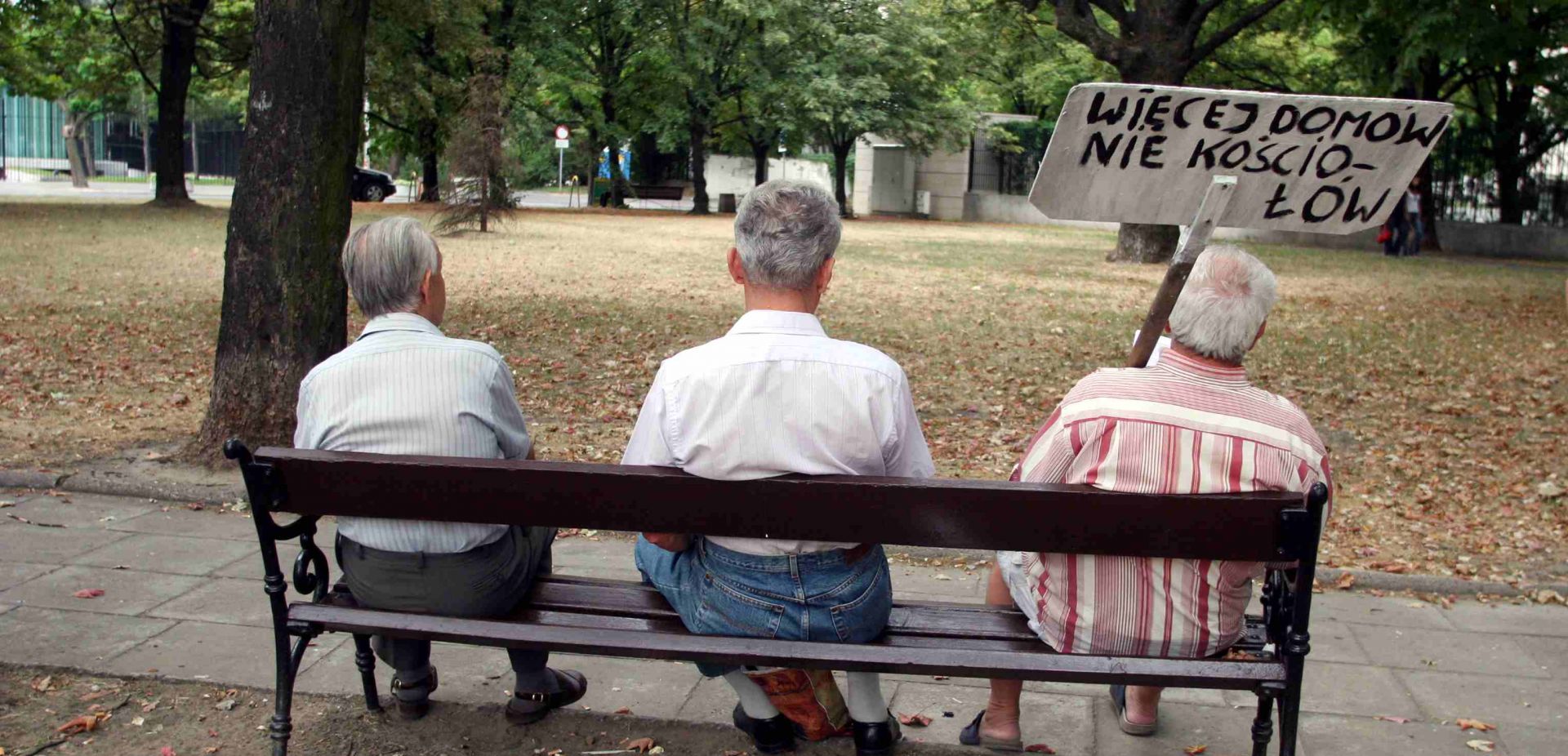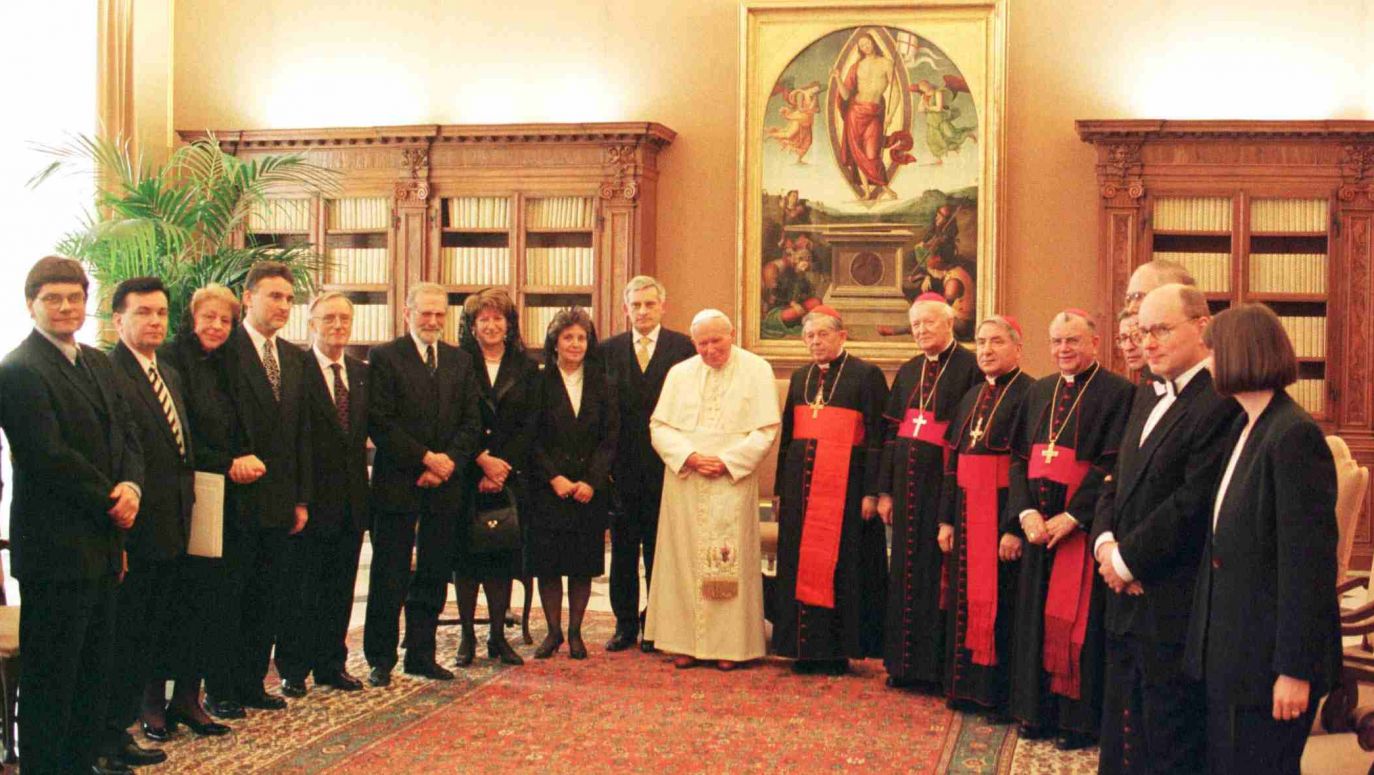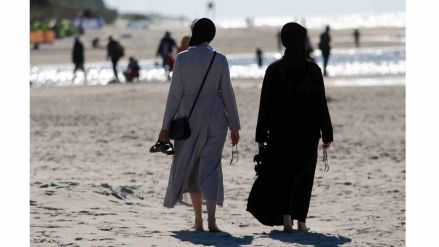This is the second time, in similar circumstances of a holiday gathering of opposition youth, that people are talking about the need for Poland to denounce the Concordat and calling it an archaism. It would seem that an experienced politician, MP and MEP, in addition to being a political scientist, knows how to read with understanding, especially legal documents, intergovernmental and diplomatic agreements. And that he is aware of the quality of these documents, that is, for example, he understands the importance of something like the agreement between the Republic of Poland and the Holy See.
It is this type of international agreement that is called a concordat - the Holy See has perhaps 180 such agreements, including with international organisations and with countries that are not considered Catholic at all. And it probably does not occur to anyone in these countries to break or terminate such an agreement - after all, it is concluded by two parties and both care about the relationship.
The Holy See, or Vatican City State - the two names are equal, although the Vatican itself does not use both names at the same time, in the same document - is a subject of international law, the Vatican's position in international relations is distinctive, Vatican diplomacy inspires a multitude of peacemaking activities and engages in humanitarian and social actions organised by others. And it acts continuously, even when popes change. It is diplomacy in the classic, discreet style - if even to many observers it is an example of the most political game.
Return to Europe
Poland's return to its own international relations was a matter of the utmost importance after 1989, including relations with the Vatican City State, with which our country has been linked for a thousand years. After all, the oldest known Polish state document is an act from the early 1590s known as Dagome iudex, in which Mieszko I places the state of Gniezno - civitas Schinesghe - under the protection of Pope John XV, i.e. under the protection of St Peter. In a word, he enters Europe.
 SIGN UP TO OUR PAGE
SIGN UP TO OUR PAGE

This is neither the time nor the place to describe century after century the rich relations of the Republic of Poland with the Papacy, but there is something to refer to. Suffice it to say that when, after the Partitions, Poland returned to the world map and again became a subject of international relations, it signed a concordat with the Vatican State in 1925, and its ratification took a mere four months, while its breaking - in September 1945 - took barely a moment. The Provisional Government of National Unity, which was dependent on Moscow's endowment, adopted a unilateral resolution on breaking the concordat, which entailed numerous unfavourable consequences in the life of Poland and Poles.
That is why one of the first decisions of the new authorities after 1989 - especially as the Pope was a Pole who had played a key role in the collapse of communism, which was strangling Poland and a chunk of Europe - was to return to the normal world of international relations. Also to normal relations with the Holy See. "The Republic of Poland, by signing the Concordat after regaining its sovereignty, returned to the ranks of major democracies - respecting religious freedom - and trying to arrange relations with the Church in such a way that they guarantee social peace and create high protection of civil rights," comments Marcin Przeciszewski in Catholic News Agency (KAI).

 SIGN UP TO OUR PAGE
SIGN UP TO OUR PAGE
 This is neither the time nor the place to describe century after century the rich relations of the Republic of Poland with the Papacy, but there is something to refer to. Suffice it to say that when, after the Partitions, Poland returned to the world map and again became a subject of international relations, it signed a concordat with the Vatican State in 1925, and its ratification took a mere four months, while its breaking - in September 1945 - took barely a moment. The Provisional Government of National Unity, which was dependent on Moscow's endowment, adopted a unilateral resolution on breaking the concordat, which entailed numerous unfavourable consequences in the life of Poland and Poles.
This is neither the time nor the place to describe century after century the rich relations of the Republic of Poland with the Papacy, but there is something to refer to. Suffice it to say that when, after the Partitions, Poland returned to the world map and again became a subject of international relations, it signed a concordat with the Vatican State in 1925, and its ratification took a mere four months, while its breaking - in September 1945 - took barely a moment. The Provisional Government of National Unity, which was dependent on Moscow's endowment, adopted a unilateral resolution on breaking the concordat, which entailed numerous unfavourable consequences in the life of Poland and Poles.







